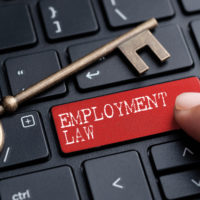
As an employer in the United States, you may face a charge from the Equal Employment Opportunity Commission (EEOC) at some point. Do you know what happens next or how to handle the situation? A charge from the EEOC is not something that you should brush off or take lightly. It’s important to understand your obligations and how the process works. It is highly recommended to contact a Florida employment law attorney to find out more information.
What Leads to an EEOC Charge?
Employers covered by the EEOC might have an employee claim discrimination at some point. In order to file a lawsuit for discrimination, they must file a charge of discrimination with the EEOC first. This doesn’t mean that the government is accusing you. It does mean an employee has accused you and there now needs to be an investigation to determine whether there is reasonable cause to believe discrimination took place.
What Happens During the Investigation?
In some cases, there may be an option for mediation or settlement. The EEOC will advise both you and the charging party if this particular case is eligible for mediation, but you can inquire about the option for settlement.
You will be asked to provide information during the investigation. This can include:
- Position Statement: You will be asked to explain your side of the story.
- Request for Information: You may have to respond to a Request for Information (“RFI”). This can be personnel policies, the charging party’s personnel file, and any other information that may be relevant to the investigation.
- Permit an On-Site Visit: You may be asked to give permission for an on-site visit. This can expedite the whole process and help resolve the matter faster. In certain cases, you may be able to skip the RFI and have the records available for photocopying or viewing during the visit.
- Witness Information: You may need to provide contact information for employees or have them available for witness interviews if needed. A company representative can be present during interviews with management personnel, but the EEOC can interview non-management-level employees without a company representative being present.
Is My Company Covered by the EEOC?
It’s important to know whether or not your company is covered under the EEOC laws. You can consult the website and determine whether your business qualifies. In general, most companies that employ 15 or more people are covered by EEOC laws. It jumps to 20 employees if the matter involves age discrimination. For companies that have less than 15 employees, these companies may still be subject to claims that arise from local ordinances that apply to companies with only 5 or 10 employees.
The EEOC will enforce existing federal laws that make it illegal for a company to harass or discriminate against employees based on religion, race, national origin, sex, disability, age (40 or older), and more. These laws also make it illegal for employers to deny reasonable workplace accommodation requests or to retaliate against an employee for filing a complaint.
Retaining a Florida Employment Law Attorney
If you have questions about EEOC charges, you need to speak with a West Palm Beach labor and employment lawyer. The skilled team at Pincus & Currier LLP can help. Call our office at 561-868-1340 to schedule a consultation.
